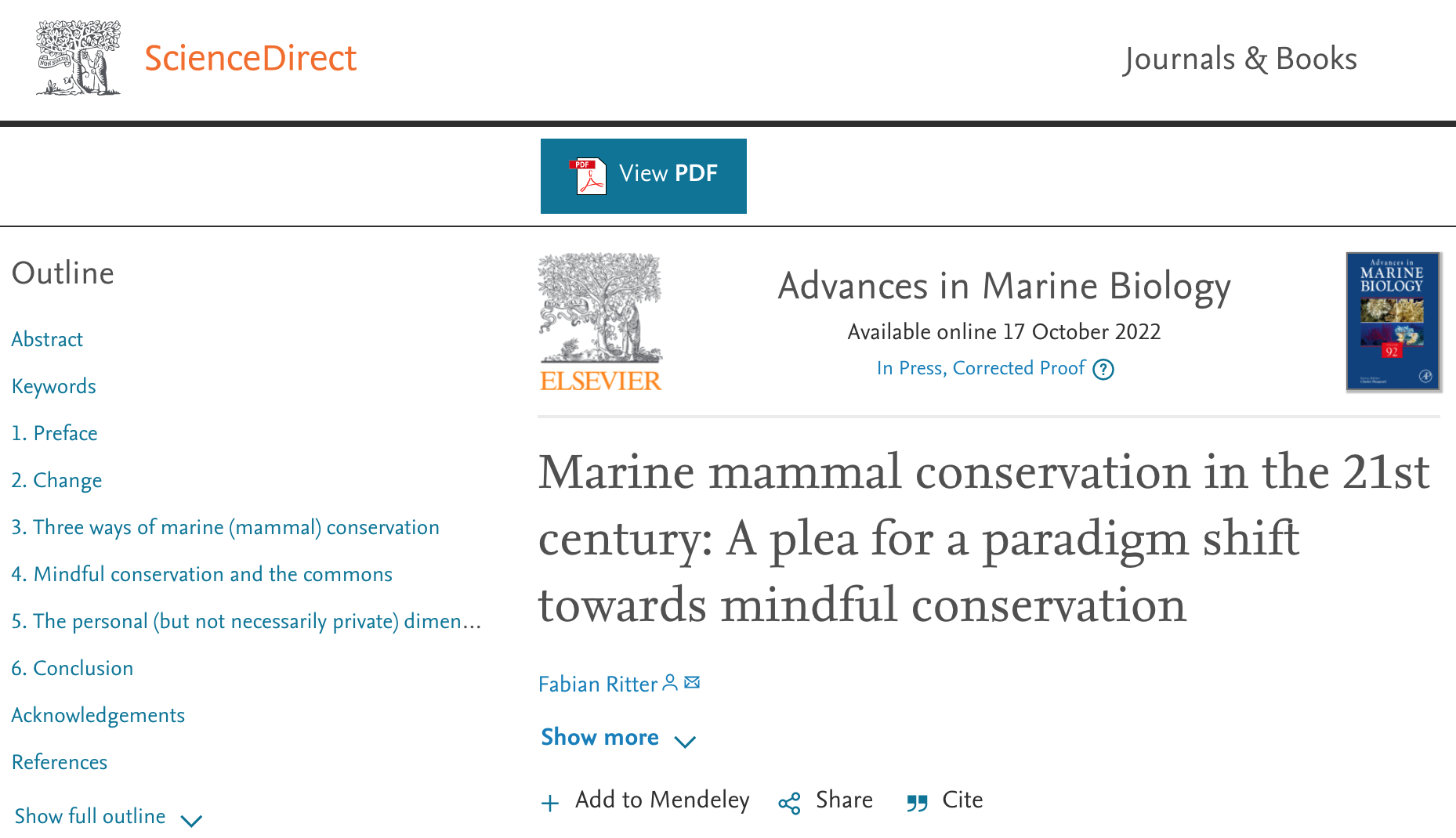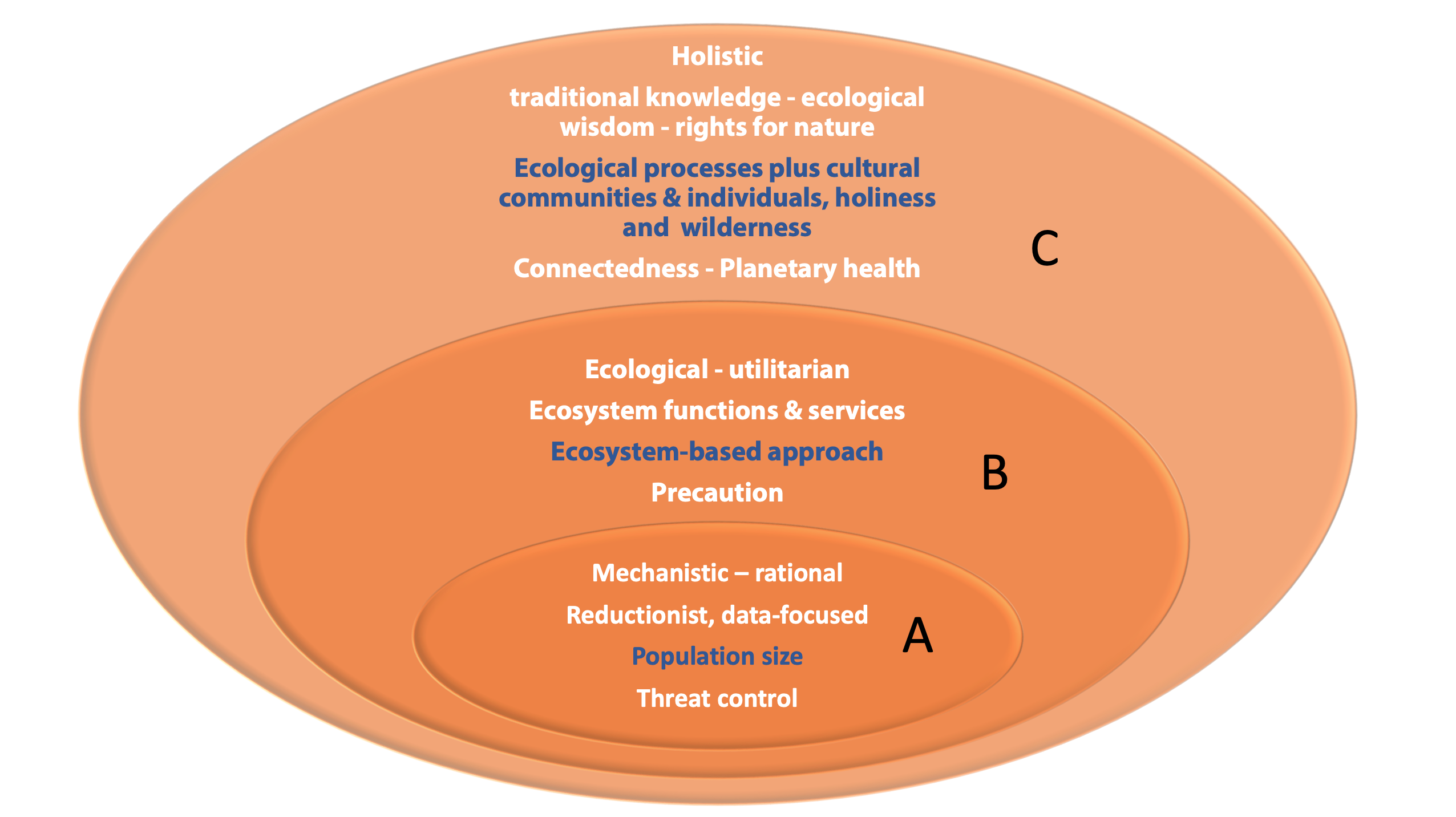Mindful Conservation
In October 2022, the scientific journal “Advances in Marine Biology” published an article by our chairman Fabian Ritter: “Marine Mammal Conservation in the 21st Century: a plea for a Paradigm Shift Towards Mindful Conservation”. The article deals with differing approaches in marine conservation and pleads for a holistic and conscious approach towards the oceans and its inhabitants. This requires the development of a (new) narrative of connectedness between humans and nature, which must replace the currently prevailing narrative of separateness. Read the Abstract of the article here:
Marine mammals are held in high esteem by the general public, and are recognised as a flagship species for conservation, while at the same time they suffer from anthropogenic impacts on a global scale, often in extreme ways. There appears to be a huge discrepancy between how we as humans think about our fellow creatures in the sea, and how we behave to impact and/or conserve them. Here, I examine why the purely scientific and thus intellectual approach to marine mammal conservation has had limited success over the past decades. While there are some obvious success stories in cetacean conservation, the situation today is, for many species and populations, more dire than it has ever been. The idea of ‘we need to know more’—a credo of the scientific community—often is politically misrepresented to postpone necessary conservation decisions. To put us on a path towards more profound and, importantly, more effective marine conservation, as conservationists we need to go deeper and change the narrative of separation, i.e., the concept of human beings being set apart from the rest of nature. Instead, there is a need to create a narrative of connectedness, i.e., the consciousness of humans being an integral part of the planetary system. Rather than telling horror stories about the plight of marine mammals, conservationists also need to trigger positive emotions about them within ourselves. More holistic aspects of conservation need to be incorporated in our future efforts, including the better integration of traditional knowledge and indigenous wisdom, recognising ecosystem functions of marine life and protecting the processes they sustain, respecting ‘holiness’ of nature while focusing on the animals’ individuality, personhood and the cultural identity of distinct communities. Effective marine mammal conservation will only be possible on the basis of a profound change of our own values and a fundamental change of the societal system we are living in.
The article is available on ScienceDirect: https://www.sciencedirect.com/science/article/abs/pii/S0065288122000165
PDF on request by mail.

